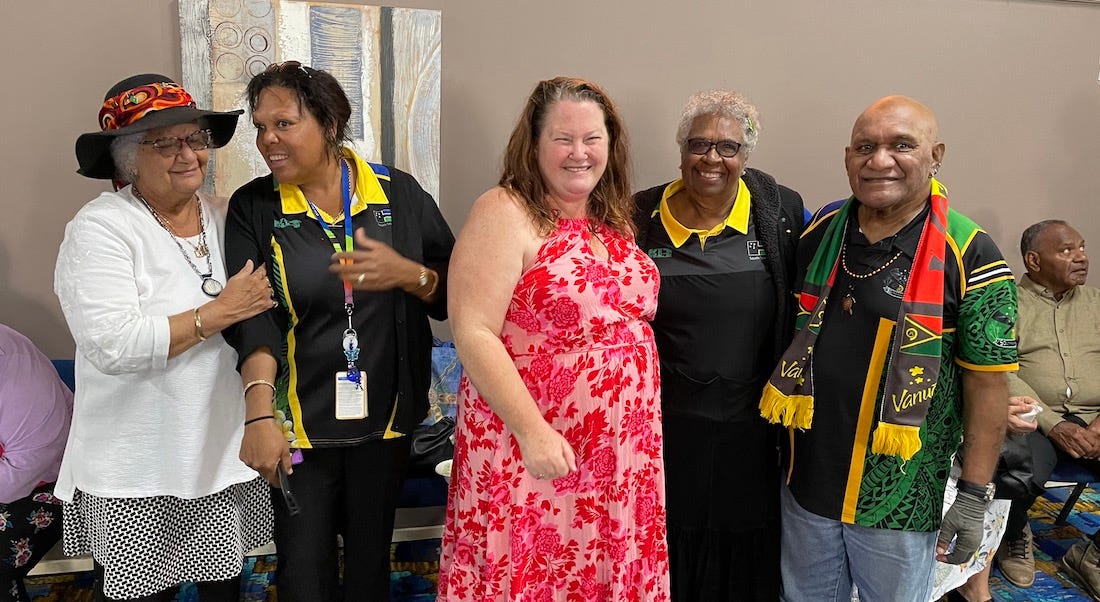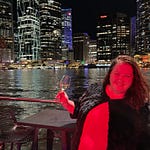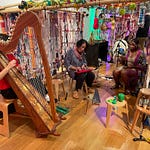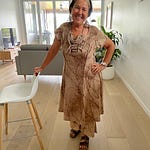In some hope that humankind is progressing, I bring you a good news story this week for Streets of Your Town podcast.
It’s a very Australian story, with a long history of exploitation and shame that’s carried down through generations.
It took more than a century, but on Friday July 30th 2021, Mayor Jack Dempsey acknowledged that blackbirding history, and that it amounted to slavery. And then he said sorry.
It was a small but significant ceremony in Bundaberg on Queensland’s Central Coast that started to turn around this long history of exploitation and shame.
Mr Dempsey, took the step of becoming the first representative of any government in Australia, to say sorry for the practice of kidnapping Pacific Islanders and paying them a pittance for their backbreaking work on sugar plantations.
“The colonial era was not kind to Vanuatu. The islands were exploited for their natural and human resources since the Spanish arrived on Santo in the 1600s,” Mr Dempsey said in his speech, which you can hear on this episode of Streets of Your Town podcast.
“The British colony of Queensland was one of the exploiters in the 1800s and this continued into the early years of the Australian Federation.
“I’m referring to the practice of employing indentured labour in the canefields.
“Today I wish to extend a sincere apology on behalf of the Bundaberg Region community for the abuse which occurred in “blackbirding” people from Vanuatu and other Pacific Islands to work in the Queensland sugarcane industry.
“Our sugarcane industry was built on the backs of Pacific Island labour, along with much of our infrastructure such as rock walls, which are still visible today.
“Although slavery was abolished in the British Empire at the time, the practice of forcing indentured labour into Queensland canefields was equivalent to slavery and abhorrent.
“I sincerely regret the pain caused to families and communities in Vanuatu and other Island nations. Saying sorry is necessary for healing and to move forward in friendship.
“Our industries today rely on voluntary seasonal labour. This must always be a relationship based on respect, courtesy, fairness and trust.”
But even more important than his words, was the reaction of the Australian South Sea Islanders in the audience. Many people were brought to tears, as the Vanuatu flag was raised outside the council chambers alongside the Australian flag and the Aboriginal and Torres Strait Islander flag.
They gathered and sang the Vanuatu national anthem after Mr Dempsey’s speech.
Coral Walker, the president of the Bundaberg South Sea Islanders Heritage Association, knows the blackbirding history on a deeply personal level. Some of her relatives were stolen from the Epi and Tanna Islands in Vanuatu and brought to Queensland in the 1800s.
“That’s part of my era for my great grandfather and great grandmother, part of their family were blackbirded over here. That has a lot of significance to me,” Coral says.
“I think about the atrocities that they had to go through when they were stolen from the islands and put in the ships.
“They were brought over here they didn’t know where they were going to live, what kind of food they were going to eat. I think about those atrocities.”
Ezekiel Nagus and Nathan Tanna stood at the back of the ceremony, behind dozens of people gathered to watch the flag raising.
Ezekiel was one of the Australian South Sea Islanders at the ceremony who had waited a lifetime to hear that apology, and hopefully make a new start.
“It’s a bit of recognition,” he says.
“This is coming more forward now than the last 20 or 30 years, we’ve never seen this.
“Today we see these three flags…we’re making a mark you know.
“I’m 70 and it’s good to see this. For 60 years there’s a lot of changes happening in Bundaberg.”
Bundaberg is a land of riches—an agricultural powerhouse. It’s one of the nation’s most crucial food bowls, producing around a quarter of Australia’s fresh produce.
But that rich agricultural history was established on the backs of people trafficked to this country from Pacific Islands such as Vanuatu, the Solomon Islands and Papua New Guinea.
More than 62-thousand of them were brought to Australia from the 1860s to the turn of the 20th century. Many were forcibly removed from their Pacific Island homes in a practice known as “blackbirding” to work in appalling conditions on cane fields and cotton farms.
One of the main challenges facing Bundaberg is its reliance on seasonal labour for agriculture and tourism, leaving many locals caught in a cycle of precarious employment, and farmers looking to overseas labour to harvest their crops.
James Tetehr is from the Vanuatu island of Ambrim, and has been working in Bundaberg for two years. He was chosen to attend the ceremony on behalf of the Vanuatu government, thanking the Mayor for setting such a strong precedent by his apology, and signing a sister city agreement.
He says he hopes families could now be reunited with long lost relatives they’ve lost who were blackbirded to Australia.
“We can trace down our history and find there’s a gap in family lines and we know there must be some way. We are glad you’ve recognised that and we will catch up with them,” James says.
Afterwards the gathered crowd went inside for a special celebration.
Mayor Jack Dempsey looked around and told me how privileged he felt to be able to take this step for his region, and how he hopes other towns established on blackbirding labour such as Mackay and Townsville will take his lead to make similar apologies to Australian South Sea Islanders, to pay tribute to the backbreaking work they did with little recompense, to establish Queensland’s agricultural prosperity.
“It’s a historical day for Australia and Vanuatu as well as the Bundaberg regional community,” he says.
Behind the Scenes
I’ve been quite The Wandering Journo this week, managing to get up to Bundaberg for this episode’s historic event in Mildred the Cantankerous Kombi, and make it back to Brisbane just in time for our latest Covid lockdown. I am feeling very grateful that I could travel to bring this story to you all, as you know how passionate I am about telling stories that aren’t told, giving voice to those who don’t have access to the media, and getting it all in that glorious face to face quality audio that makes the story sing even louder in your ears.
I was lucky enough to be invited into the ABC Wide Bay studio by Ross Kay for a special Q&A on the significance of this historic blackbirding apology, from my perspective as a journo who’s reported on this topic for many years, particularly on the need to properly acknowledge that communities like Bundy up and down the Queensland coast were established by the toil and sweat of more than 60,000 Pacific Islanders brought to Queensland, many brought by deceit against their will. You can listen to that Q&A here:
And if you want to go back to where it all began—here’s a link to my New York International Radio Festivals award winning radio documentary on blackbirding from a couple of years ago. I was awarded a bronze and silver trophy.
The Gender Card podcast
One of the great joys of my Wandering Journo life is that I help produce the brilliant podcast The Gender Card for Griffith University’s Gender Equity Research network.
The topics they choose to highlight are always fascinating—and I’m a picky hard-to-please journo in that department!
Like my latest episode—do you think slavery and human trafficking are figments of a long distant past? Nope—it’s still alive and well—and not just overseas! But also in Australia. Do you think you could spot it?
It’s hidden in plain sight. So much so The Australian Red Cross and Freedom Hub have teams working to help people caught up in it, in realms from IT, orphanages, agriculture and restaurants, not just sex work.
In 2018, more than 50,000 people were bought and sold in 148 countries around the world.
I learnt so much from interviewing these amazing experts on The Gender Card podcast: Chantel Brown from the Australian Red Cross Support for Trafficked People program, the Queensland lead of The Freedom Hub Keight Davis, and Deputy Head of the Griffith Law School Dr Kate van Doore.
What a way to mark the United Nations World Day Against Trafficking in Persons. #endhumantrafficking


Talk again soon, my Wandering Journo tribe! Thanks so much for your ongoing support—and please share this with your friends.
Nance
















Share this post